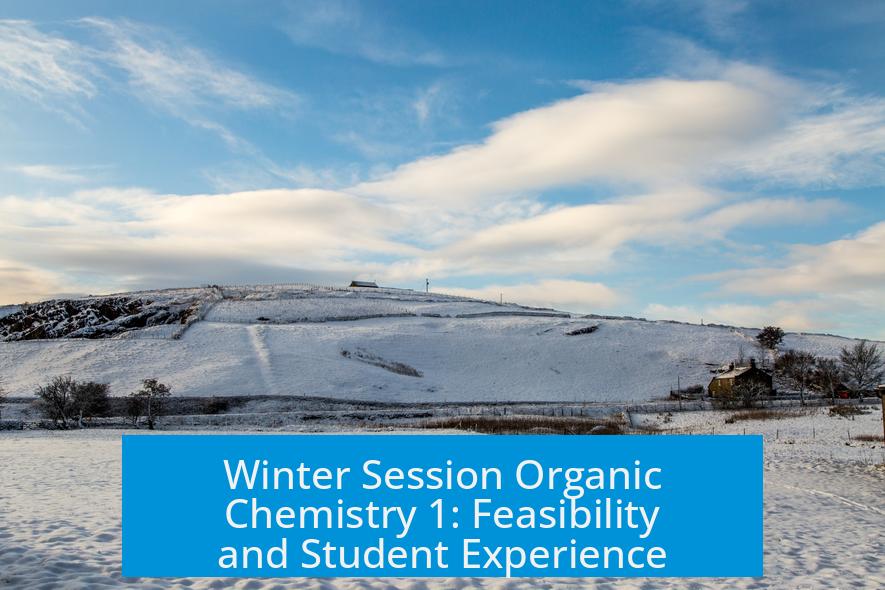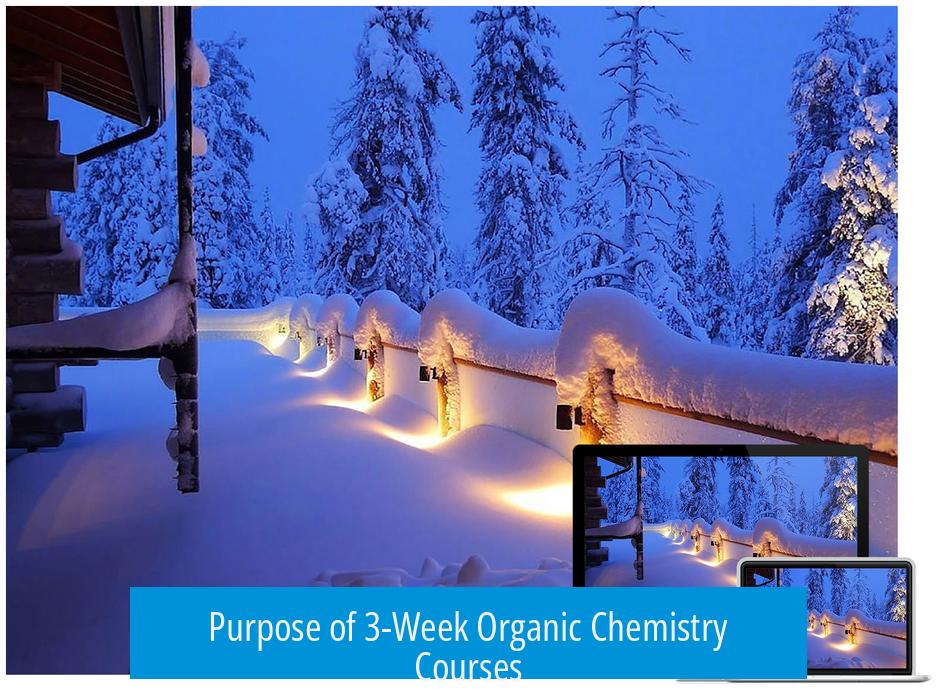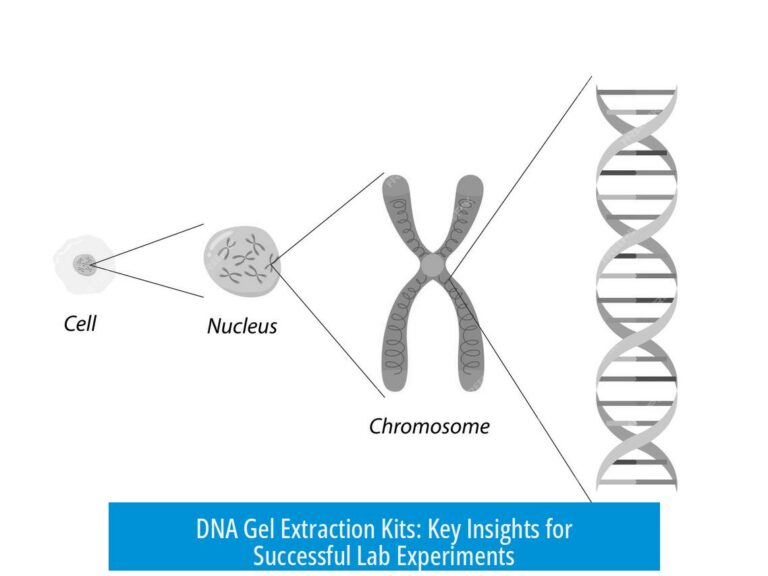Winter Session Organic Chemistry 1: Feasibility and Student Experience

Winter session Organic Chemistry 1 courses are typically challenging due to the accelerated pace and extensive material. Completing a full Organic Chemistry course in just three weeks is widely regarded as impractical for initial learning, but short sessions may serve as review opportunities for students needing to catch up.
Challenges of Intensive Winter Courses
Attempting to cover the entire Organic Chemistry 1 syllabus in three weeks raises significant concerns. The rapid pace leaves limited time for absorbing complex concepts such as reaction mechanisms, stereochemistry, and synthesis strategies.
- Opinions from educators suggest such intensive courses may compromise understanding.
- Most students find it difficult to maintain mastery with condensed schedules.
- Courses extending over 7 weeks with daily classes show improved student outcomes due to steady progress and review time.
Student Focus and Course Load
Students enrolled in very short sessions often juggle multiple courses, which might reduce their ability to focus on Organic Chemistry fully.
Summer or longer sessions where students take only Organic Chemistry allow deeper engagement and better retention. This suggests that the winter session’s compressed time frame could negatively impact performance unless the student is focused solely on this course.
Purpose of 3-Week Organic Chemistry Courses

Some evidence points to three-week courses serving primarily as review opportunities for students retaking the class after a previous failure.
- Such courses help students stay on track for sequential classes like Organic Chemistry II in the spring.
- They function more like intensive refreshers than initial complete courses.
Laboratory Component Considerations
The inclusion of laboratory work adds complexity to scheduling. Summer courses often incorporate the organic lab, which demands additional time for experimental work and analysis.
Winter courses excluding the lab portion make the accelerated schedule somewhat more manageable. However, absence of the lab means students must complete it later or separately to meet degree requirements.
Availability and Student Demand for Winter Organic Chemistry
Students frequently express difficulty finding winter session Organic Chemistry offerings.
- Winter courses are less common than fall, spring, or summer sessions.
- There is high demand, especially from students needing to accelerate their degree plans or retake the course.
- Transparency and availability vary widely between institutions.
Key Takeaways
- 3-week Winter Organic Chemistry courses are typically too fast for full mastery.
- Longer sessions with daily contact hours improve comprehension and grades.
- Short courses may serve as reviews for students retaking the course.
- Including lab in winter sessions complicates scheduling and workload.
- Winter session Organic Chemistry classes are limited and in high demand.
Q1: Is it practical to complete Organic Chemistry 1 in a 3-week winter session?
Most experts doubt the effectiveness of completing the course in just 3 weeks. The pace tends to be too fast for deep understanding. It may work only as a review for students who previously failed.
Q2: How does a 7-week summer Organic Chemistry course compare to a 3-week winter session?
Seven-week courses with daily classes allow students more time to focus and absorb material. Students often do better in summer when Organic Chemistry is their only class, unlike intense 3-week sessions.
Q3: Does the inclusion of a lab affect the feasibility of winter Organic Chemistry courses?
Yes, adding a lab increases workload and stress. A 3-week course without a lab is more manageable, but those with labs may be too demanding for such a short period.
Q4: Are winter Organic Chemistry courses widely available?
Many students struggle to find winter session Organic Chemistry classes near them. Availability is limited, causing a high demand but few options.
Q5: Who is the typical target for accelerated 3-week Organic Chemistry courses?
These courses often serve students retaking the class. They offer a condensed review to help these students pass and stay on track for subsequent courses.





Leave a Comment